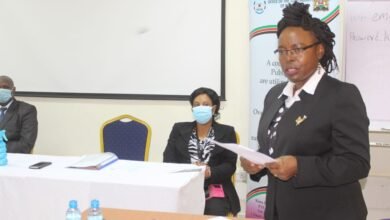
Ministers from Egypt, Ethiopia and Sudan agreed on Wednesday to reconvene in the United States later this month to finalize an agreement on a giant hydropower dam on the Blue Nile that sparked a diplomatic crisis between Cairo and Addis Ababa.
The ministers met in Washington this week and agreed to fill the $4 billion (Ksh400 bn) Grand Ethiopian Renaissance Dam (GERD) in stages during the wet season, taking into account the impact on downstream reservoirs.
The U.S. Treasury Department, which hosted the meeting, said in a joint statement with the countries and the World Bank. Reuters reported.
Initial filling of the dam, due to begin in July, will aim for a level of 595 meters above sea level and early electricity generation while providing appropriate mitigation measures for Egypt and Sudan during severe droughts, the statement said.
The ministers will hold technical and legal talks ahead of their Jan. 28-29 meeting in Washington, where they plan to finalize the agreement, the statement said.
Cairo fears the dam, announced in 2011 and under construction on the Blue Nile near Ethiopia’s border with Sudan, will restrict supplies of already scarce Nile waters on which its population of more than 100 million people is almost entirely dependent.
Addis Ababa denies the dam will undermine Egypt’s access to water and says the project is crucial to its economic development, as it aims to become Africa’s biggest power exporter with a projected capacity of more than 6,000 megawatts.
The three regional powers convened in Washington for the third time on Monday, aiming to reach a deal before Wednesday’s deadline the nations had agreed to following a November meeting with U.S. Treasury Secretary Steven Mnuchin and World Bank President David Malpass.
Previous meetings ended without agreement, with Egypt voicing concern that Ethiopia had not offered sufficient guarantees that filling the dam would be slowed during droughts.
Meetings in Addis Ababa last week ended in deadlock as Ethiopia said Egypt had proposed filling the dam over an extended period of 12-21 years, and that this was unacceptable.
However, Egypt said it had not specified the number of years over which the dam’s reservoir should be filled, and that an earlier, stage-based process agreed on by the countries would lead to a filling period of six to seven years under normal conditions.
By Reuters





